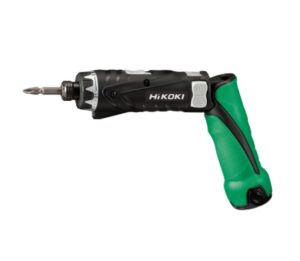Introduction
The question of whether a 36V electric drill can use a 36Vf battery involves understanding the nuances of voltage labeling, battery chemistry, and tool compatibility. This article delves into the technical specifications of 36V vs. 36Vf batteries, examines compatibility across major power tool brands, and provides actionable insights for users. We’ll analyze leading manufacturers like DeWalt, Milwaukee, Makita, Bosch, and Ryobi, exploring their 36V tool ecosystems and battery technologies.
Understanding 36V vs. 36Vf Batteries
The “Vf” suffix in battery labels is not a standardized industry term. Instead, it is often a marketing tactic used by some manufacturers to denote a battery’s configuration or capacitance rather than its actual voltage. Here’s a breakdown:
- Voltage vs. Configuration:
- 36V: Indicates the nominal voltage of the battery pack. Most cordless tools are designed to operate at specific voltages (e.g., 18V, 20V, 36V), and using a battery with a mismatched voltage can damage the tool or reduce performance.
- 36Vf: The “Vf” may refer to:
- Series Configuration: For example, two 18V batteries connected in series to achieve 36V.
- Capacitance: In some cases, “Vf” denotes microfarads (μF), a unit of capacitance, which is irrelevant to voltage.
- Technical Risks of Mismatch:
- Using a battery with a voltage higher or lower than the tool’s rating can cause overheating, motor damage, or reduced torque. For instance, a 36Vf battery labeled as 36V but internally composed of lower-voltage cells (e.g., 18V × 2) may not deliver consistent power.
Brand-Specific Compatibility Analysis
Let’s examine how major brands handle 36V tools and batteries, focusing on compatibility and technical specifications.
1. DeWalt
- 36V Tools: DeWalt’s 36V line includes tools like the DCD999 Hammer Drill and DCH273 Rotary Hammer. These tools are part of the FlexVolt system, which automatically switches between 20V MAX and 60V modes depending on the battery.
- Batteries:
- FlexVolt Batteries: DeWalt’s 60V MAX FlexVolt batteries (e.g., DCB609) are backward compatible with 20V MAX tools but are not labeled as “36Vf.”
- Compatibility: DeWalt tools are designed for specific voltage platforms. Using non-DeWalt batteries, especially those with unclear labeling like “36Vf,” is not recommended due to potential BMS (Battery Management System) mismatches.
2. Milwaukee
- 36V Tools: Milwaukee’s M18 FUEL line operates on 18V batteries, while their MX FUEL equipment uses higher-voltage batteries (e.g., MX407B for 48V tools). They do not offer a dedicated 36V platform.
- Batteries:
- M18 REDLITHIUM Batteries: Milwaukee’s 18V batteries (e.g., M18B9) are optimized for M18 tools and are not labeled with “Vf.”
- MX FUEL Batteries: Designed for heavy-duty equipment, these batteries are not cross-compatible with M18 tools.
3. Makita
- 36V Tools: Makita offers 36V tools like the DHR280Z SDS-Plus Rotary Hammer and DGA519Z Angle Grinder. These tools are part of their 18V X2 LXT line, which uses two 18V batteries in series to achieve 36V.
- Batteries:
- 18V LXT Batteries: Makita’s 18V batteries (e.g., BL1860B) are used in pairs for 36V tools. The brand does not use “Vf” labeling.
- Compatibility: Using non-Makita batteries may void warranties and risk performance issues.
4. Bosch
- 36V Tools: Bosch’s 36V line includes tools like the GBH36V-LI SDS-Plus Bulldog Rotary Hammer. These tools are designed for professional applications and require high-performance batteries.
- Batteries:
- GBA 36V Batteries: Bosch’s 36V batteries (e.g., GBA 36V 6.0Ah) use Li-ion chemistry and include PCB protection. They are not labeled as “36Vf.”
- Compatibility: Bosch tools are engineered for their proprietary batteries. Third-party batteries, especially those with unclear labels, may lack the necessary safety features.
5. Ryobi
- 36V Tools: Ryobi’s ONE+ HP line includes 36V tools like the RYOBI P3610 36V Brushless Hammer Drill. These tools use two 18V batteries in series.
- Batteries:
- 18V ONE+ Batteries: Ryobi’s 18V batteries (e.g., P108) are used in pairs for 36V tools. The brand avoids “Vf” labeling.
- Compatibility: Ryobi emphasizes cross-compatibility within their ecosystem but does not support third-party batteries labeled as “36Vf.”

Technical Considerations and Safety
- Voltage Matching:
- Tools and batteries must have matching nominal voltages. A 36V tool requires a 36V battery (or two 18V batteries in series). Using a battery with a lower or higher voltage can cause damage.
- BMS Compatibility:
- Lithium-ion batteries rely on BMS to regulate charging, discharging, and temperature. Non-OEM batteries may lack proper BMS, increasing fire or explosion risks.
- Capacity and Runtime:
- Battery capacity (Ah) affects runtime. For example, a 36V 6.0Ah battery will outlast a 36V 4.0Ah battery in the same tool. However, this has no bearing on voltage compatibility.
Recommendations
- Use OEM Batteries:
- For optimal performance and safety, always use batteries recommended by the tool manufacturer.
- Verify Specifications:
- If considering third-party batteries, confirm the nominal voltage, chemistry, and BMS compatibility. Avoid batteries with unclear labels like “36Vf.”
- Consult Manuals:
- Refer to the tool’s user manual for battery specifications. Manufacturers often provide detailed compatibility charts.
Conclusion
While a 36V electric drill may physically accept a 36Vf battery due to similar form factors, the technical risks outweigh any potential benefits. The “Vf” label lacks standardization, and such batteries often misrepresent their voltage or capacitance. To ensure safety, performance, and warranty compliance, prioritize OEM batteries from reputable brands like DeWalt, Milwaukee, Makita, Bosch, and Ryobi. Always match the tool’s voltage requirements to the battery’s nominal voltage, avoiding ambiguous labeling practices

